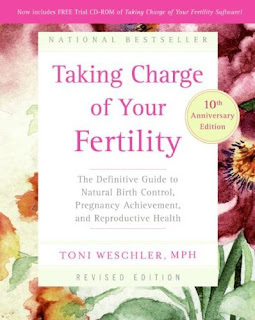You’ll notice in the statistics on sexuality post that 8% of women rarely or never orgasm. This may surprise quite a few of you. I’ve heard a lot of women say that they can’t orgasm and worry that they never will. However, most of them figure it out.
I once heard a sex therapist compare an orgasm to a sneeze. That is that it varies so much from individual to individual. It varies in intensity, length, frequency etc. Don't compare yourself to others.

In order to properly treat this, first examine what you think the possible cause is. Are you stressed out? Are you on medications? Do you feel somewhere in your mind that you should not enjoy sex? Do you have a good marital relationship? Is sex painful or uncomfortable?... There are a number of factors that could contribute to lack of orgasm so just make sure you’re doing a good self-assessment. (See posts such as
The Good Girl Syndrome or
Hypoactive Sexual Desire and
Sexual Response Cycle)
Here are some ideas:
Do sensate focus.Have your spouse figure out what feels good for you. This is what I refer to as mutual masturbation. Communicate with him on what you like regarding pressure, speed, intensity etc. Do you enjoy manual or oral stimulation? The clitoris is the base for female orgasm. Do you know where the clitoris is located? Do you realize that it might withdraw part of the way through the SRC for some women?
If you feel comfortable masturbating, you could try it. Don't know where to start? See
here. More women are successful on their own than with a partner. My personal belief is you should try with your partner to promote couple intimacy. It’s a learning process for both of you. Some women who masturbate to orgasm would rather just do it on their own than ever involve their partner. I think it’s better if the experience is shared. It's up to you.
Try different positions.Some positions allow the clitoris to be more easily stimulated than others. Try a few. You could even have the man insert his penis slightly while also manually stimulating your clitoris. Make it a gradual process until the manual stimulation can be removed.
Create an environment to promote orgasmIf you’ve reached orgasm before, what were the circumstances? Were you in lingerie? Was it spontaneous sex? Was sex planned? Were you kid-free for the night? Were you not stressed about work, school, money etc? Just figuring it out could help. Or you could try to make circumstances similar.
Don’t focus on orgasmOften when you are so worried about having an orgasm, you won’t orgasm. Just try to enjoy sex for a week or two without worrying about orgasm and see what happens. Focus on pleasuring your partner, connection, and closeness. See how long you can go with just foreplay.
Examine what orgasm means to you and your partner.Do you judge a good sexual encounter by how “good” the orgasm was? How many times orgasm occurred? What about foreplay? Is sex only successful or enjoyable if orgasm is attained? Do you like to be in control and hate to lose control and orgasm? What does it mean to not orgasm? Talk about it.
Kegal ExercisesSo easy to do and you can do them anywhere. Nobody will even know. Strengthening the muscles is helpful and will help give you some control.
Therapeutic Devices
Eros Clitoral Therapy Device Therapy An Eros-CTD will increase blood flow to clitoris by acting as a vacuum
InterStim Neurostimulator
Implant that sends electrical impulses
Gwen also has some recommendations for vibrators
here,
here,
here and
here.







